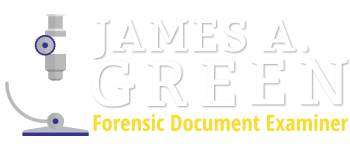The term notary public has its roots in medieval England when traveling merchants would seek the services of men and women who could verify the legitimacy of contracts. Fast forward to modern times, and we find that notaries still play an essential role in verifying the legitimacy of documents. However, their part is often more complex than stamping contracts with an official seal.
Working With a Court Interpreter
A notary public can work with a court interpreter, but their roles should stay separate. It is considered unethical for a notary to translate documents from their original language. Sometimes a translation will be signed by the translator and then notarized. Due to this process, the translator cannot be the notary; they would be approving their own signature. An example of this is when a couple is filing for divorce. Person A may speak little English, while Person B does. When the translator works with a non-English speaker, they may sign an affidavit certifying the translation is accurate. The document will then be notarized as the final step.
Notarial Procedure Guidance
Guiding a person requesting a document to be notarized is vital to confirm the notary block conforms to the requirements in the respective state where the act occurs. There is commonly specific language required in the notary section, including the location and date. The signer must refrain from signing the document before being witnessed by the notary. There are specific requirements related to the entries in the notary journal. The notarization process serves an essential purpose in confirming a person’s signature being written by that person.
Having said that, it should be noted notarized signatures are occasionally falsified by a “cut and paste” process. In a murder case this examiner was involved with, a person used a notary stamp (without the knowledge of the notary) to make it appear her husband signed a life insurance document. The defendant murdered her husband and attempted to collect on the insurance benefit. The plan did not work out well for her.
Commercial Documents
Notarizing commercial documents safeguards the signatures on important documents in business transactions. The notary often works with business-related documents, estate documents, power-of-attorney forms, etc. Their understanding of these common documents will assure their clients of having the notary and notarization performed properly.
Jurat
A jurat is an affidavit that has been sworn before a notary public, meaning that the person who signed it swore that it was true under penalty of perjury. As with all other areas of a notary’s duties, there is no room for errors. Mistakes may bring distrust to the validity of an important document.
Certifying Copies of Documents for Use in Foreign Countries
Notaries are asked to certify copies of documents for use in foreign countries. The country may require a document be notarized, commonly for court or government submissions. Notaries will be familiar with the formatting requirements or will learn what is necessary to complete the process.

